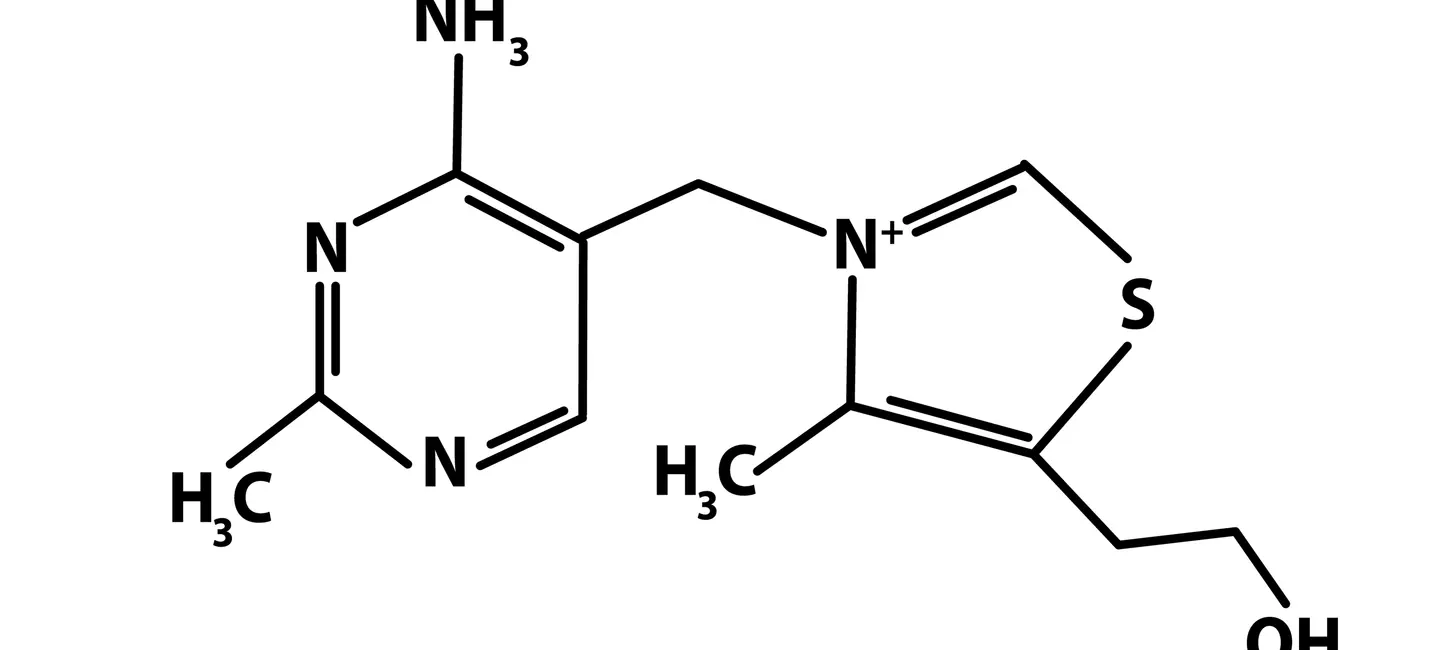
Benfotiamine is similar to thiamine (vitamin B1), but is absorbed by the body better than thiamine. The body changes benfotiamine to thiamine.
Since the body absorbs benfotiamine better than thiamine, benfotiamine can increase how much thiamine is in the body. This may help prevent or treat certain symptoms or diseases caused by low thiamine levels. Benfotiamine can be made by certain plants, such as garlic and onion. It can also be made in a lab.
People use benfotiamine for nerve damage caused by diabetes (diabetic neuropathy). It is also used for alcohol use disorder, Alzheimer disease, arthritis, and other conditions, but there is no good scientific evidence to support most of these uses.
Is It Effective?
NatMed Pro rates effectiveness based on scientific evidence according to the following scale: Effective, Likely Effective, Possibly Effective, Possibly Ineffective, Likely Ineffective, Ineffective, and Insufficient Evidence to Rate.
- Nerve pain in people with diabetes (diabetic neuropathy). Taking benfotiamine by mouth, with or without vitamin B6 and B12, can improve pain and other symptoms of nerve damage caused by diabetes.
- Kidney damage in people with diabetes (diabetic nephropathy). Taking benfotiamine by mouth does not seem to improve markers of kidney damage in people with diabetes who have kidney disease.
There is interest in using benfotiamine for a number of other purposes, but there isn't enough reliable information to say whether it might be helpful.
Is it Safe?
When taken by mouth: Benfotiamine is likely safe at doses of up to 600 mg daily for up to 24 weeks. Side effects are rare, but some people have reported stomach problems and skin rashes.
Special Precautions & Warnings:
Pregnancy and breast-feeding: There isn't enough reliable information to know if benfotiamine is safe to use when pregnant or breast-feeding. Stay on the safe side and avoid use.
It is not known if Benfotiamine interacts with any medicines. Before taking Benfotiamine, talk with your healthcare professional if you take any medications.
There are no known interactions with herbs and supplements.
There are no known interactions with foods.
Benfotiamine is most often used by adults in doses of 150-600 mg by mouth daily for up to 6 months. Speak with a healthcare provider to find out what dose might be best for a specific condition.
Benfothiamine, Benfotiamin, S-benzoylthiamine O-monophosphate
Information on this website is for informational use only and is not intended to replace professional medical advice, diagnosis, or treatment. While evidence-based, it is not guaranteed to be error-free and is not intended to meet any particular user’s needs or requirements or to cover all possible uses, safety concerns, interactions, outcomes, or adverse effects. Always check with your doctor or other medical professional before making healthcare decisions (including taking any medication) and do not delay or disregard seeking medical advice or treatment based on any information displayed on this website.
© TRC Healthcare 2024. All rights reserved. Use and/or distribution is permitted only pursuant to a valid license or other permission from TRC Healthcare.
